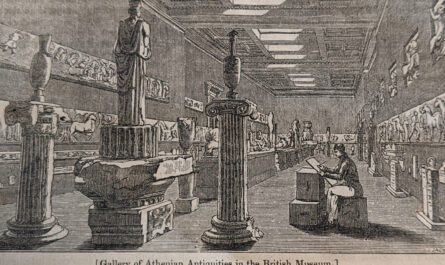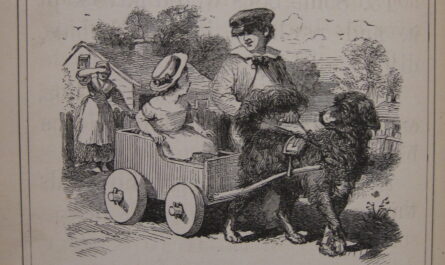Today’s blog post features SLU undergraduate student Christian Rickert, an English and Catholic Studies major, who began working with the Rare Books Division this past fall semester. In continuation of our “Students in the Stacks” series, Christian explored the Rare Books collection and today shares his findings on Charles Dickens’s works in journalism:
Overshadowed by his towering literary reputation, Charles Dickens’s journalism is often overlooked. One of the most prolific authors of the Victorian era, Dickens contributed a significant amount of work in the form of weekly publications. One could read anything from a segment of Dickens’s next novel to his take on the economic situation in Britain. Writing to England’s rapidly growing middle class of the nineteenth century, Dickens founded and “conducted” the weekly periodical Household Words. A titular allusion to Shakespeare’s St. Crispin’s Day speech from Henry V, Household Words ultimately signifies Dickens’s ambition for the paper: to be a presence in every English home.
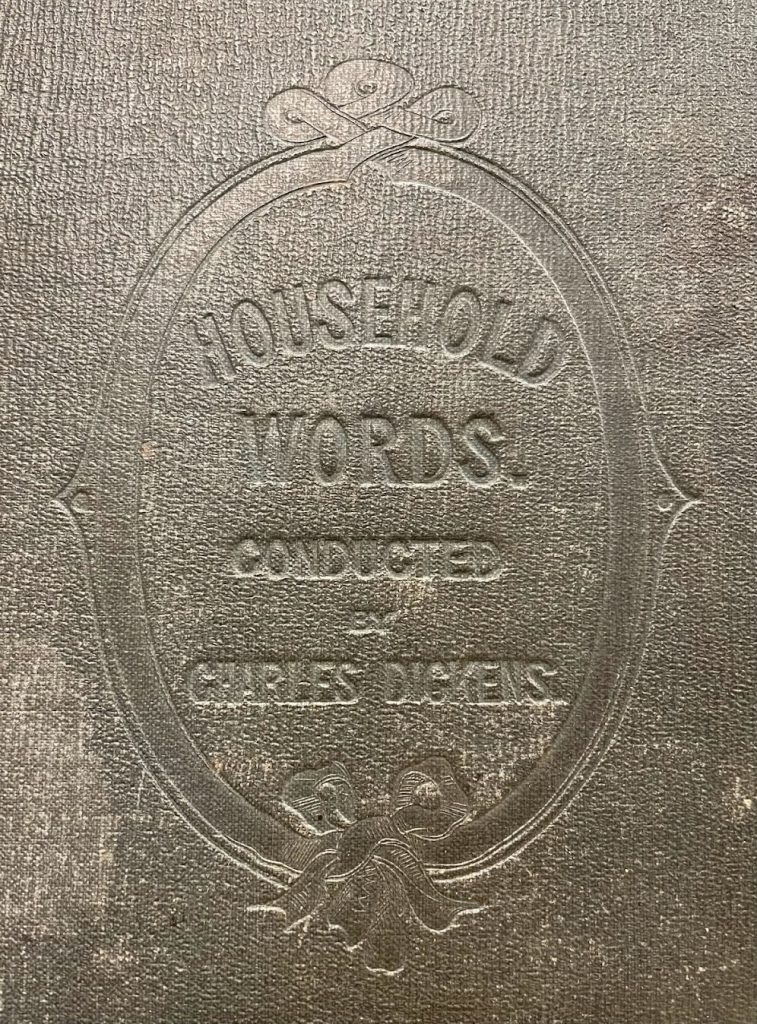
The SLU Rare Books collection contains the full run of Household Words—a nineteen-volume set of cloth-bound compilations. Published serially throughout the 1850s, this set was issued by Bradbury and Evans as an annual two-volume collection of the corresponding year’s issues.
Even from the inaugural issue, the reader can clearly see that Dickens has purpose and passion for bringing the reality of poverty to the middle-class reader. In his article “The Amusements of the People,” Dickens draws attention to the common human need for leisure under the guise of a theater review. As he details the experiences of a lower-class audience in the Royal Victoria Theatre, he implicitly argues for the importance of the working class’s rest and relaxation. Born into a working-class family himself, Dickens’s zeal for economic justice assumes a prominent role in his writing. Strategically, Dickens inserts scathing criticism on class division into his otherwise lighthearted account of a night at the theater. As he aphorizes in his opening line, “it may be affirmed that the upper half of the world neither knows nor greatly cares how the lower half amuses itself.”
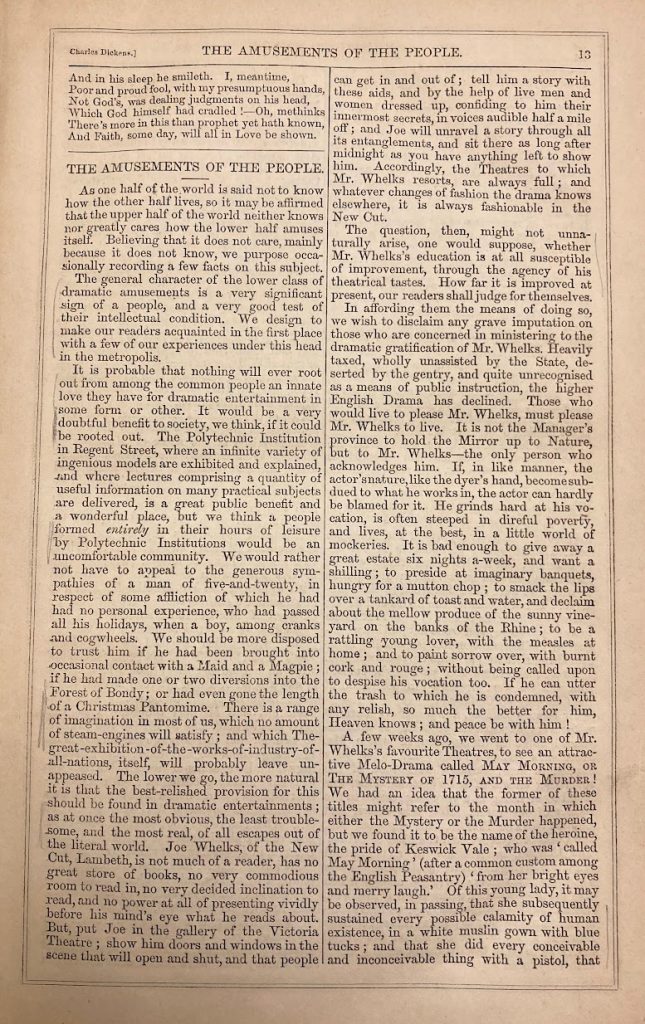
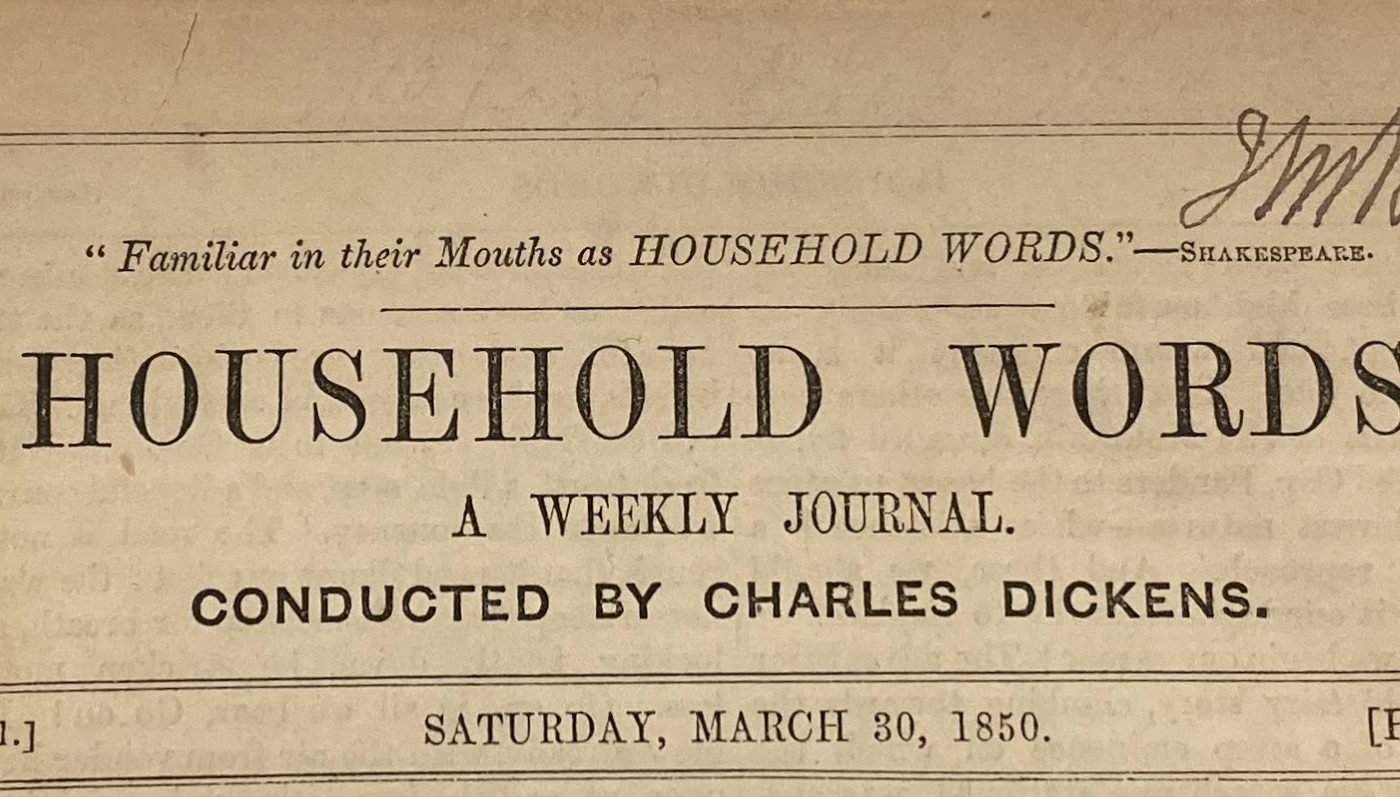
 by
by 
